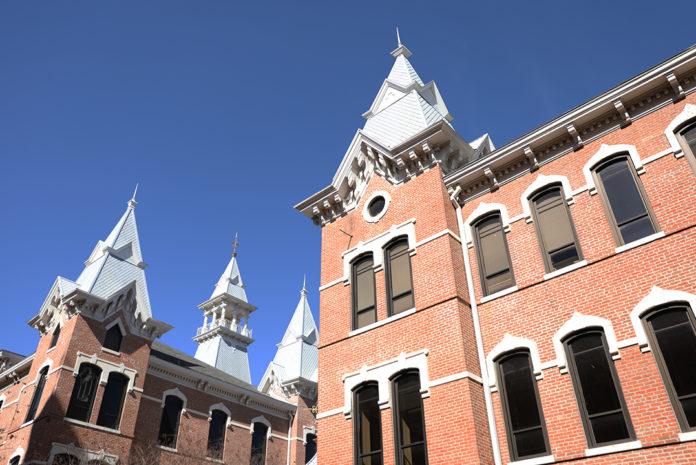By Rylee Seavers | Staff Writer
The Baylor Interdisciplinary Core and This Matters hosted a panel on Monday in Alexander Hall to discuss the current refugee crisis throughout the world.
Dr. Mark Long, professor in the BIC and director of Middle East studies, and Dr. Candi Cann, professor in the BIC, spoke on the crisis and answered questions from students.
Cann discussed the difference between a refugee and an emigrant. A refugee is a person who was forced to flee a country and did not choose to leave, whereas an emigrant is a person who leaves a country voluntarily, she said. Some of the reasons people flee are war, ethnic cleansing, slavery and persecution, Cann said.
According to the United Nations High Commissioner for Refugees, there were 65.3 million forcibly displaced people worldwide and 21.3 million refugees worldwide in 2015. Of the 21.3 million refugees, only 107,100 were resettled.
Cann said that refugee camps are not necessarily safer than the countries that people are fleeing due to poor sanitation and disease in the refugee camps. The process for a person to be resettled is also very complicated, she said, and only 50,000 refugees are allowed into the United States each year under the current administration.
Cann also talked about the Christian response to refugees, citing Leviticus 25:35 and Matthew 25:35-36 which mention caring for the “traveler” or the “sojourner.”
“I think part of it is understanding that our country was founded on the notion of religious freedom, and religious freedom actually means religious freedom for all religions, not just Christianity,” Cann said in response to a question about policy that upholds the values of the United States, while still being hospitable.
Long spoke about his experience serving in the U.S. Air Force and his research regarding the Middle East. He said the Islamic State (ISIS) is watching the United States’ response to the refugee crisis and is using it as a part of its message.
In an Islamic State publication, the group discouraged people from emigrating to the United States because their children may lose their faith, do drugs, have sex and learn about democracy, Long said.
Students were invited to discuss with each other and write questions for Cann and Long. The panel was moderated by San Angelo sophomore Kennen Dickens, academic chair of Kennen Dickens.
Dickens said it is wise for students to learn about their opinions and interests now, in a culture like Baylor’s, to prepare for situations when they may have to advocate for causes.
“Our actions are directly affecting the future policies of our nation and of our communities, so I think Baylor prides itself in the fact that we do inspire leaders to go out and not just be simple receivers of messages but to go out and be leaders within our communities,” Dickens said.
Questions dealt with U.S. policy, the U.N.’s role in the refugee crisis, Christian behavior toward refugees and efforts to make Baylor a sanctuary campus.
“The planet is simply getting smaller and smaller. We’re in a connected world, and what happens in some remote town or city in Pakistan or Myanmar or Morocco will have an impact on us. We’re connected economically, we’re connected technologically in every way, and some small ripple in some small corner of the world can have a direct impact on us,” Long said.






